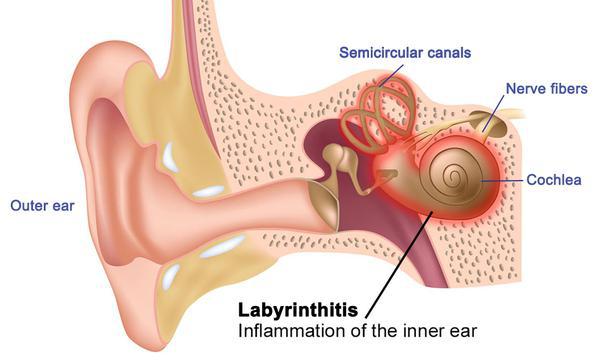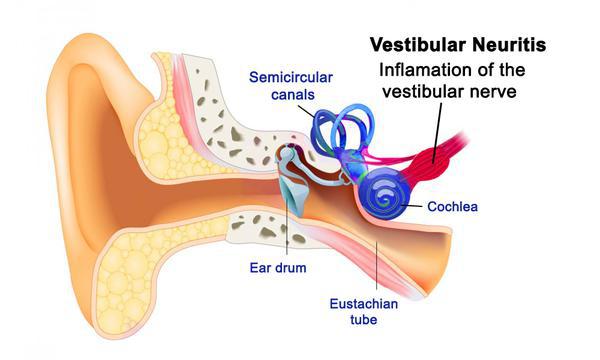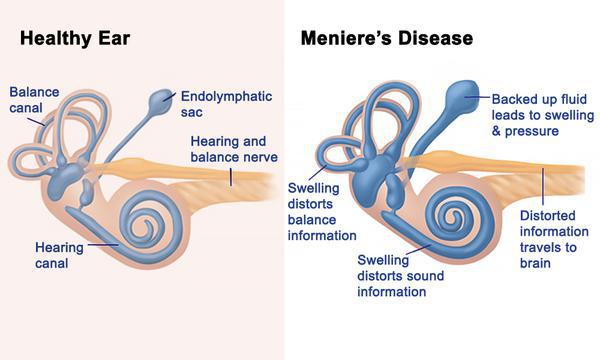Our previous post discussed the topic of a specific type of vertigo called Benign Paroxysmal Positional Vertigo (BPPV). This post will discuss more about the causes, recurrence, and prognosis of BPPV, along with provide an understanding of different types of vertigo that produce similar symptoms.
Positional vertigo (BPPV) is a fairly common form of vestibular vertigo. It may be accounted for approximately 20-30% of diagnoses related to vertigo. BPPV may occur at any age, however is most commonly experienced in individuals over the age of 50. It is more common in women than men.
The exact cause of BPPV unknown, with the majority of cases arising almost out of nowhere. However, there are some causes that have been associated with increasing your chances of getting BPPV. This may include, but is not limited to, an injury or trauma to your head, an inner ear infection or disorder, migraines, or prolonged periods of time lying on your back.
Once you have BPPV, it is fairly common that it may come back, even after a successful treatment. Since there is not too much we know about the causes of positional vertigo it is hard to say how frequently or when you may experience an episode of BPPV again. However, it has recurrence rates as high at 50% within 5 years. This seems to be especially true if your positional vertigo is a result of head trauma.
Without proper treatment from a trained individual, BPPV symptoms may worsen over time. However, it is possible that this may go away on its own but may take up to 6 weeks. Within that time frame, it is possible for the severity and number of episodes to be minimized by paying attention to your head position.
Keep in mind that while anti-motion sickness drugs may be used to reduce any nausea symptoms you have, they should not be taken over long periods of time and will not cure your positional vertigo. It is important to recognize that another form of dizziness may be causing your symptoms.
As mentioned previously, vertigo is a type of dizziness that is commonly described as a spinning sensation or as false sense of movement. Vertigo can be further sub categorized as peripheral vertigo or central vertigo.
Peripheral vertigo is related to issues that regard your inner ear, while central vertigo is related to issues with your brain or brainstem. Since peripheral vertigo is related to your inner ear, these cases tend to be more severe as they affect our main balance system in comparison to central vertigo.
Aside from Benign Paroxysmal Positional Vertigo (BPPV), other forms of peripheral vertigo may include Labyrinthitis, Vestibular Neuritis, or Meniere’s Disease. Below you will find a short description about each.
Labyrinthitis is an inner infection that results in the inflammation of the vestibular labyrinth found in our inner ear. This infection may also include inflammation of other structures in the inner ear, which in turn may provide false information to our brain. More specifically, it affects both divisions of our vestibulocochlear nerve, the vestibular branch being responsible for our balance and the cochlear branch being responsible for our hearing.
The signs and symptoms of Labyrinthitis include vertigo, dizziness, and hearing loss to name a few. Most often, this condition only affects one ear. Labyrinthitis is not very common and majority of the symptoms will go away over time. This form of vertigo is typically the result of a viral infection, but may also arise from a bacterial infection, although it is not as common.

Vestibular Neuritis, similar to Labyrinthitis, is a disorder that occurs with the swelling or inflammation of our vestibulocochlear nerve. However, only the vestibular branch, responsible for our balance, is inflammed, in comparison to both branches being inflamed in Labyrinthitis.
The signs and symptoms of Vestibular Neuritis include vertigo, dizziness, hearing loss, or ringing in the ear. Vestibular Neuritis is most often the result of a viral infection infection of the inner ear, or of a viral infection that may have occurred somewhere else in the body. The symptoms of both Vestibular Neuritis and Labyrinthitis may occur at any age, however is less reported in children.

Meniere’s Disease is an inner ear disorder that may cause the sudden onset of vertigo lasting up to, but no more than 24 hours. This is considered a chronic condition that may occur at any age, but typically arises between young and middle-aged adults. In most cases, only one ear is affected.
The signs and symptoms of Meniere’s disease may include recurring vertigo episodes, ringing in your ears (tinnitus), hearing loss, and pressure or a feeling of fullness in the affected ear. While the exact cause of Meniere’s disease is unknown, the symptoms experienced seem to be a result of an increased or abnormal amount of fluid called endolymph fluid in your inner ear.

The content used on this post and site are for informational purposes only. The content is not intended to be a substitute for professional medical advice, diagnosis, or treatment. Always seek the advice of your physician or other qualified health provider with any questions you may have regarding a medical condition.
Citations:
“Benign Paroxysmal Positional Vertigo .” Cleveland Clinic, Benign Paroxysmal Positional Vertigo,
my.clevelandclinic.org/health/diseases/11858-benign-paroxysmal-positional-vertigo.
Eske, Jamie. “What is labyrinthitis?.” Medical News Today. MediLexicon, Intl., 7 Nov. 2018. Web.
8 Apr. 2019. <https://www.medicalnewstoday.com/articles/323606.php>
“Labyrinthitis.” Cedars-Sinai, Cedars-Sinai, 2019, www.cedars-sinai.org/health-library/diseases-and-conditions/l/labyrinthitis.html.
“Meniere’s disease.” Mayo Clinic, 8 Dec. 2018,
www.mayoclinic.org/diseases-conditions/menieres-disease/symptoms-causes/syc-20374910.
Shupert, Charlotte L. “Labyrinthitis and Vestibular Neuritis.” Veda, Veda, 2019, vestibular.org/labyrinthitis-and-vestibular-neuritis.
“Vestibular Neuritis .” Cleveland Clinic, Cleveland Clinic, 23 May 2013,
my.clevelandclinic.org/health/diseases/15227-vestibular-neuritis.
Woodhouse, BScPT, Sheelah. “Benign Paroxysmal Positional Vertigo (BPPV).” Veda, Veda,
vestibular.org/understanding-vestibular-disorders/types-vestibular-disorders/benign-paroxysmal-positional-vertigo.

